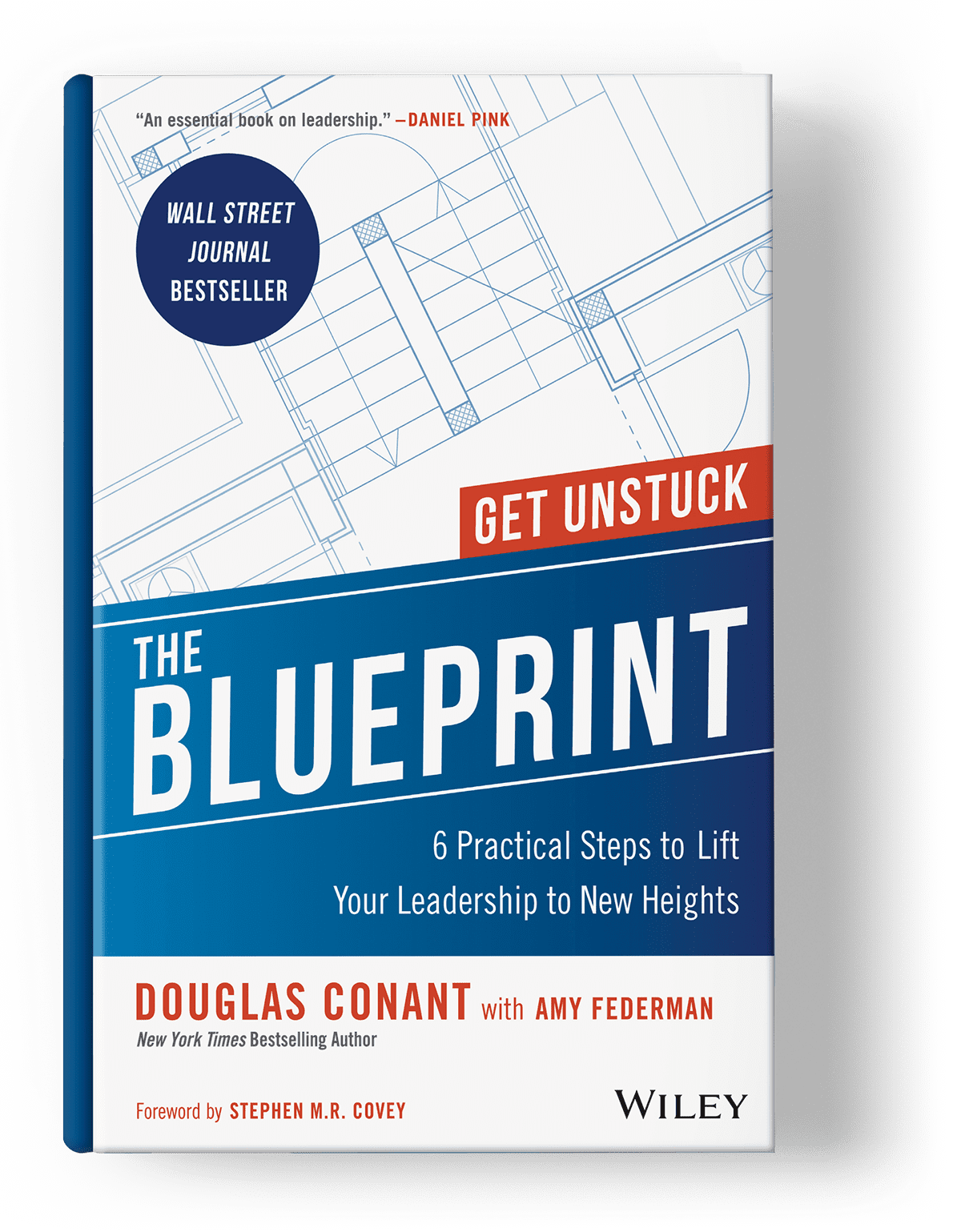Today we dispatched the August edition of our Leadership That Works Newsletter, a curated digest of fascinating leadership links to read right now, sent at the end of each month. In this month’s fascinating leadership links: forego your ego, plan like a Navy SEAL, see the future, and more. As always, we’re sharing the articles from our newsletter here in case you’re not subscribed to our mailing list. If you like what you see, you can sign up to receive our newsletter here.
See the Future
“The best leaders are not reactionary leaders but anticipatory leaders,” says this wise Global Leadership Network post on forward-thinking leadership. Reactionary leaders merely respond to changes as they occur, whereas anticipatory leaders are proactive; they, “develop the discipline to be able to look around the corner to the future and see what is next.” (At ConantLeadership, we refer to these two types of leaders as “incidental” or reactive, and “intentional” or proactive.) Anticipatory leaders are able to sense what lies around the corner and plan for, or “see”, the future. Learn how you can develop the anticipatory leadership skill in the full post here.
**For more on seeing the future, explore our post on becoming a leadership time traveler.
Forego Your Ego
“When the ego is tickled, it grows,” write the authors of this sage article in Harvard Business Review. As leaders rise the ranks and achieve more perks and influence, often the opportunity for their egos to be “tickled” increases greatly, sometimes resulting in what psychologists call “hubris syndrome” which can “warp our perspective or twist our values.” To avoid letting an inflated ego corrupt their behavior, leaders should be diligent about keeping it in check; the authors offer three smart tips that can help here.
Purpose Is the New Normal
Last week, 181 prominent U.S. CEOs issued a statement that redefines American business, explains this Korn Ferry article covering the newsworthy development. Historically, maximizing shareholder profit has been the main objective for corporations, but the recent statement offers a more expansive mandate for leaders and companies–one that is purpose-driven and focused on delivering value to allconstituencies. The statement is aligned with a “new normal” that has been emerging over the past decade, “more and more corporations are starting to lead with purpose, understanding that real value creation comes from serving multiple stakeholders.” Understanding the power of purpose is important, but insufficient; for organizations to fully embrace a purpose-driven way of operating, they must move beyond a “nice statement” and into “developmental transformation.” Read more about the importance of purpose in today’s world in the full article here.
The Comparison Quagmire
It can be hard to escape the allure of comparing ourselves to others. How else will we know if we measure up if we don’t have external metrics? While some comparison can be motivating, when we overvalue other people’s virtues as a metric, it becomes a trap that stifles our potential and overlooks our own unique attributes. Says Farnam Street in this great blog, “You can be anything but you can’t be everything. When we compare ourselves to others, we’re often comparing their best features against our average ones,” which is a counterproductive exercise that sets us up for unhappiness. Instead, we would be well served to remember that, “There is one thing that you’re better at than other people: being you. This is the only game you can really win.” Explore the full post here.
Culture Comes First
In the information age, organizations are scrambling to undergo digital transformations that will put them ahead of their competition. But, according to this smart Q&A with Kameshwari Rao in People Matters, only 16% of companies report that their digital transformations have improved performance. According to Rao, the lack of success is because organizations are not properly prioritizing people. She explains companies have faltered because, “their focus on culture came last or not at all. Organizations are about people and people define the culture. Hence, reversing the focus and bringing in a cultural change at the start of a transformation is key to ensuring success.” Explore all of Rao’s people-centric leadership insights in the full interview here.
**For more on putting people first, explore our post on valuing people and our post on giving people the energy to do their best work.
Plan and Debrief Like a Navy SEAL
“The modern battlefield of business” requires models and frameworks that help with both long-term and short-term execution, explains this highly actionable article in Forbes. It makes sense to find inspiration for the corporate battlefield from experts on the actual battlefield. Navy SEALs have comprehensive procedures for “effective strategic planning, leadership, execution and debriefing” that can be easily re-purposed for organizational and leadership success. Explore 7 SEAL tips for planning and 3 tips for debriefing in the full article here.
Enjoyed these links? Check out our recent link roundups from July, June, and May.
Explore our suite of leadership resources here. Or, join our mailing list here.
Ready to take your leadership to the next level? Apply to attend one of our upcoming 2-day leadership Boot Camps, taught personally by our Founder, Doug Conant, the only former Fortune 500 CEO who is a NYT bestselling author, a Top 50 Leadership Innovator, a Top 100 Leadership Speaker, and a Top 100 Most Influential Author in the World. It’s 2 days of in-person training, a lifetime of results: conantleadership.com/bootcamp
(Photo by Rodion Kutsaev on Unsplash)






0 Comments